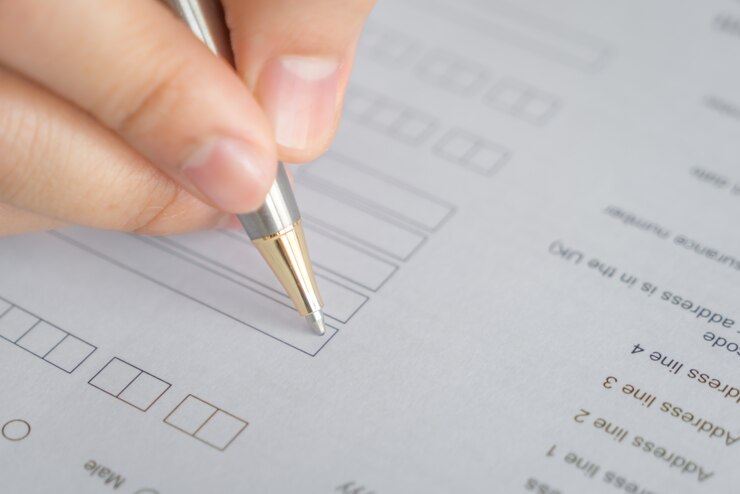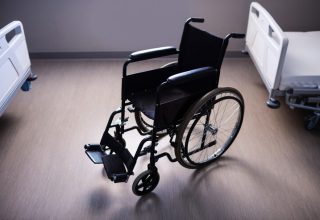Getting Ready For Your PBDS Test The Right Way
The time has finally come. After years of study and preparation, your career has led to this moment.
You’re finally about to take the PBDS! The Performance Based Development System (PBDS) test is one of those hurdles that seem daunting at first, but those of us who have been in the thick of it for a while looking back on it with a chuckle.
They’re nowhere near as scary as their reputation makes them out to be, and they’re nowhere near as difficult as you might be expecting. With proper preparation and a cool head, the test will be in your career’s rearview mirror (rearview mirror, as nobody has ever called it) before you know it.
That said, the PBDS test is still a major professional test, and deserves to be taken seriously. Just because it’s simple doesn’t mean it can’t be trouble to the unprepared; a knife is simple, too, after all. Not to worry, preparation for the PBDS is also easy.
Just like most things you worry about in life, you probably already have all of the tools and knowledge you need to succeed.
In this article, we’ll go over what you need to know about the test and learn how to get ready for it.
A Quick Overview of the Test

The PBDS is an increasingly popular test that hospitals use to determine how to fit you for a job in the medical field. It has a reputation for being scary for newcomers, but the reputation is ill-deserved.
There’s nothing to worry about so long as you’re halfway decent at studying and have stayed awake through your classes and training. The PBDS tests your competency in three categories: your critical thinking aptitude, your technical skill aptitude, and your interpersonal skill aptitude.
I don’t have to tell you how those three are vital to the medical profession! Critical thinking involves your ability to analyze a situation with a cool head and manage problems.
Technical skill is, naturally, your medical knowledge and your familiarity with the tools and procedures of the trade. Finally, interpersonal skill is your ability to connect to your patient and support them through a crisis or deal with difficult family members.
The test itself involves a series of videos that you’ll watch and answer questions about them. I didn’t know that going into the test, and I wish I had. It would have saved a lot of stress!
As you can see here, the videos present simulated medical crises that you’re likely to find in the field. You’ll watch the videos and then be asked to write a short essay about it.
In your response, you’re expected to diagnose the issue, identify dangerous and life-threatening factors and conditions, and write your course of action as a medical professional. The test itself is about five hours long in total, though travel nurses may experience a shorter test.
Tips for Preparation

Knowledge is your best weapon in this arena, and I intend to make sure that you’re frightfully armed. First and foremost, you need to know what to study. While the PBDS covers general questions related to nursing, there are four specific areas that you should make sure you cover in your studies.
You’ll need to make sure you have a good working knowledge of medical-surgical practice, neonatal critical care unit (NICU) procedure, adult ICU and critical care, and obstetrics. So long as you make sure your knowledge of those four topics is solid, you should have everything you need. Very rarely do any questions fall outside of those four categories, and those that do tend to fall under more general knowledge that you should be able to handle.
Of course, knowing what to expect and knowing how to study are two different things. As you can see at https://www.princetonreview.com/college-advice/how-to-study-for-a-test, there are best practices for studying.
The most important thing is to make sure that you’re being consistent and that your minimizing, if not outright completely removing distractions. Turn the TV off, keep any music you listen to low and familiar so it can be nothing more than background noise, and absolutely do not study where you sleep. Your brain will associate study time with nap time, and that’s no good for anyone.
Furthermore, make sure you are getting a good amount of sleep. Your brain uses sleep to codify information it’s taken in during the day, and sleeping is essentially locking the information in.
Finally, there’s one last thing you should internalize: you’ve got this! You’ve come this far, and you’ve done wonderfully so far. This thing isn’t going to beat you. You’ll beat it instead. Before you know it, you’ll be walking away with a passing grade, ready to get out there and save lives. You’ve got this!
Addtionals:
- 7 Essential Health Tests and Screenings to Be Done Every Year
- CVS Antibody Test – Accuracy, Methods, Impacts, FAQs, More
- Is CVS PCR Test Accurate? What Is It, Methods, Impacts, FAQs, More
- CVS Rapid Testing – Test Information, Procedure, Accuracy, FAQs, More



